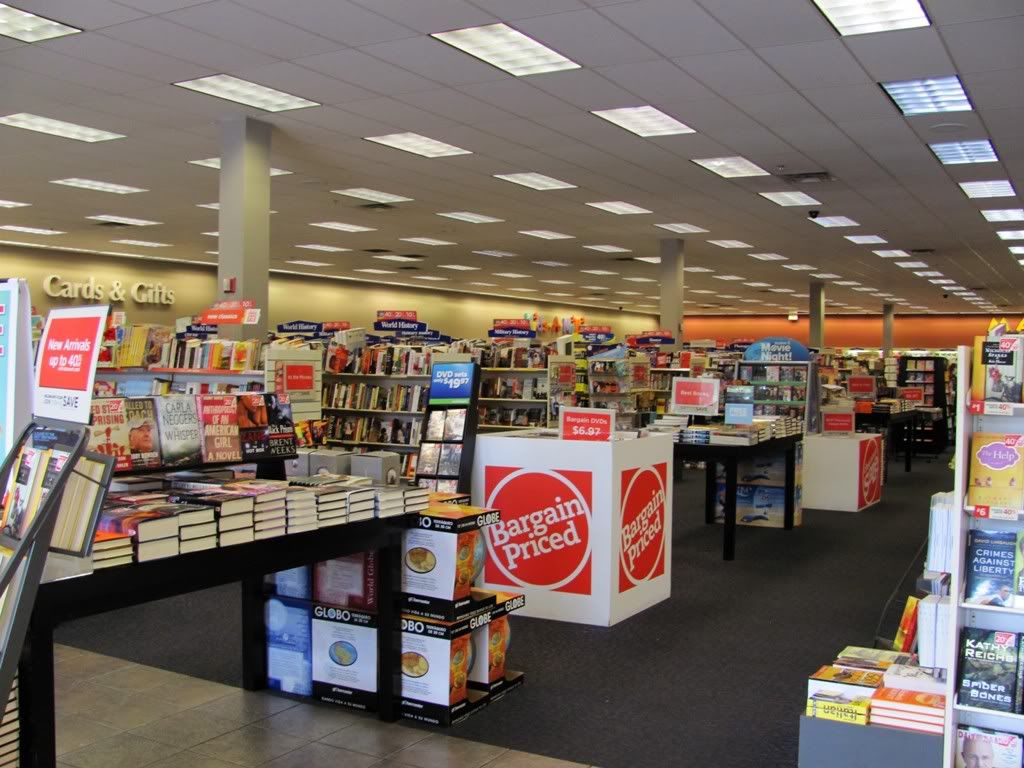 Yesterday I went to BAM, my favorite readerhood, and took some considerable me-time to amble through the aisles and soak up all the good vibes. It's like being in a library, a church and a candy shop at the same time; I tiptoe and meditate and drool a little. On this trip I probably spent as much time watching people shop as I did browsing; force of habit from my bookseller days.
Yesterday I went to BAM, my favorite readerhood, and took some considerable me-time to amble through the aisles and soak up all the good vibes. It's like being in a library, a church and a candy shop at the same time; I tiptoe and meditate and drool a little. On this trip I probably spent as much time watching people shop as I did browsing; force of habit from my bookseller days. In bookstores, there seem to be two types of shoppers: those who can't wait to leave, and those who never want to. I can actually pick out parents looking for Cliff Notes or homework assignment books for their kid; they leave an almost visible wake of high annoyance behind them. Mall bookstores have become the waiting rooms of husbands who need to kill some time and noticed the wall of magazine racks, random weary elderly folks who couldn't find an empty bench out in the mall common areas, and resentful teens whose mothers wouldn't let them get that really cool piercing at the kiosk of self-mutilation.
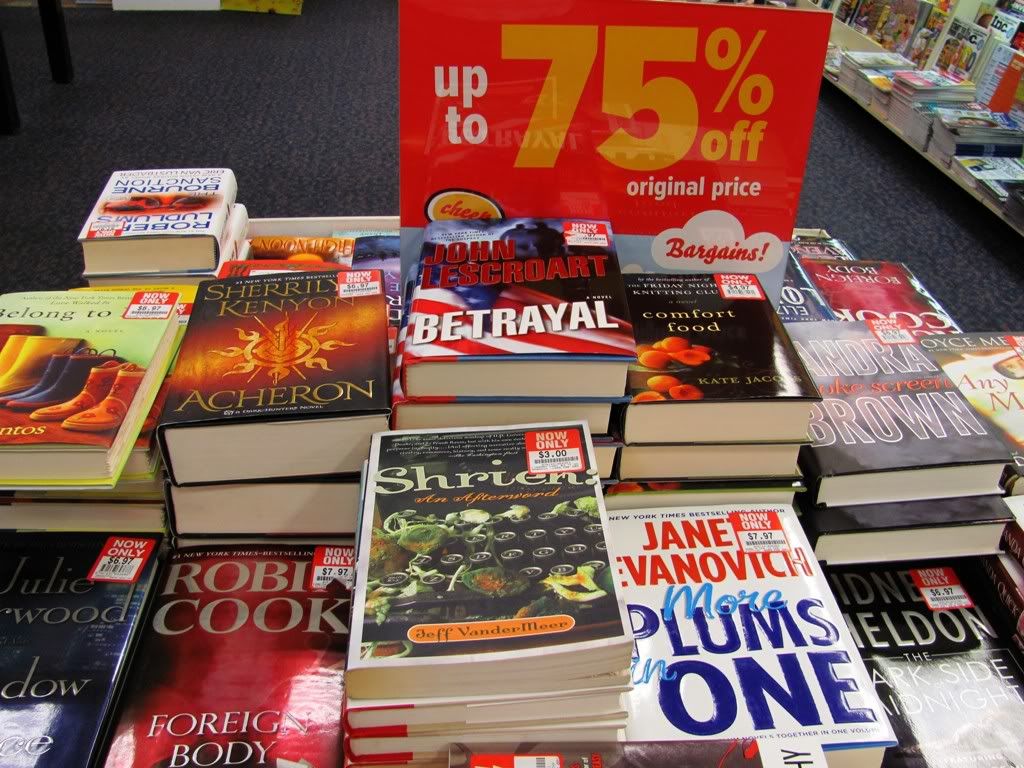 You don't really notice the people who actually want to be in the bookstore because they're usually on the move, prowling the shelves and circling the remainder tables while they look for hidden treasures and quick bargains (the 75% off remainder bins like this one get shuffled through regularly.) Unlike the gotta-get-outta-here customers, they make a grand tour, starting at the front co-op realm of bestsellers and working their way back through every aisle. When they reach the spot with their favorite form of fiction, they will stand for as long as thirty minutes in one spot while examining spines, studying covers and reading back copy before shuffling down to the next chunk of the author surname alphabet.
You don't really notice the people who actually want to be in the bookstore because they're usually on the move, prowling the shelves and circling the remainder tables while they look for hidden treasures and quick bargains (the 75% off remainder bins like this one get shuffled through regularly.) Unlike the gotta-get-outta-here customers, they make a grand tour, starting at the front co-op realm of bestsellers and working their way back through every aisle. When they reach the spot with their favorite form of fiction, they will stand for as long as thirty minutes in one spot while examining spines, studying covers and reading back copy before shuffling down to the next chunk of the author surname alphabet.Genre readers at my BAM seem to have interesting common habits. All romance readers seem to read copy first; every time I go into that aisle I see a woman standing and reading the back of books. They are the friendliest/most talkative readers, too. SF/F buffs like to stand and skim the first couple chapters in their book of choice, and they ignore everyone who comes near them. They seem to be the surliest; if you need to reach in front of them to get a book and ask them to move they take it like a personal affront. Mystery readers are usually the oldest shelf browsers (and the biggest complainers to store staff); Manga readers are some of the youngest, and because they're the poorest, usually plop down on the aisle floor to read the whole book versus buying it. I've yet to see a teenager browsing in the YA section (lots of middle-aged ladies haunt it, though.)
 Any writers in the store are usually in the cafe letting their foamy lattes go flat while they scowl at their netbooks and laptops and scribble down notes in untidy spiral bound notebooks. Most of them are there to be seen, not to write, and I tend to think of them as performance writers. If you want to really mess with them, walk behind them, pause, and glance over their shoulder at whatever they're typing. Then raise your eyebrows, smile, and move on fast (or you may end up spending the next two hours listening to a rambling description of some over-complicated Starship Troopers/Naomi Novik knockoff complete with orcs and dragons.)
Any writers in the store are usually in the cafe letting their foamy lattes go flat while they scowl at their netbooks and laptops and scribble down notes in untidy spiral bound notebooks. Most of them are there to be seen, not to write, and I tend to think of them as performance writers. If you want to really mess with them, walk behind them, pause, and glance over their shoulder at whatever they're typing. Then raise your eyebrows, smile, and move on fast (or you may end up spending the next two hours listening to a rambling description of some over-complicated Starship Troopers/Naomi Novik knockoff complete with orcs and dragons.) I'm loyal to my local BAM for a couple of reasons: they almost always have the latest releases I want (today I went to see if they had Alison Kent's Icing on the Cake, her first reality-based romance, and sure enough, it was on the shelf.) I found another novel I wanted to read but that I didn't think was supposed to be out yet, thought I had the wrong date in my head, and took it up front. As soon as the bookseller running the register scanned it, she apologized and said that it shouldn't have been shelved, she couldn't sell it to me, but offered to hold it for me until October 1st. Lay-down date enforced! Right in front of my eyes! I felt like kissing her, but settled for a smile and an "okay."
I'm loyal to my local BAM for a couple of reasons: they almost always have the latest releases I want (today I went to see if they had Alison Kent's Icing on the Cake, her first reality-based romance, and sure enough, it was on the shelf.) I found another novel I wanted to read but that I didn't think was supposed to be out yet, thought I had the wrong date in my head, and took it up front. As soon as the bookseller running the register scanned it, she apologized and said that it shouldn't have been shelved, she couldn't sell it to me, but offered to hold it for me until October 1st. Lay-down date enforced! Right in front of my eyes! I felt like kissing her, but settled for a smile and an "okay."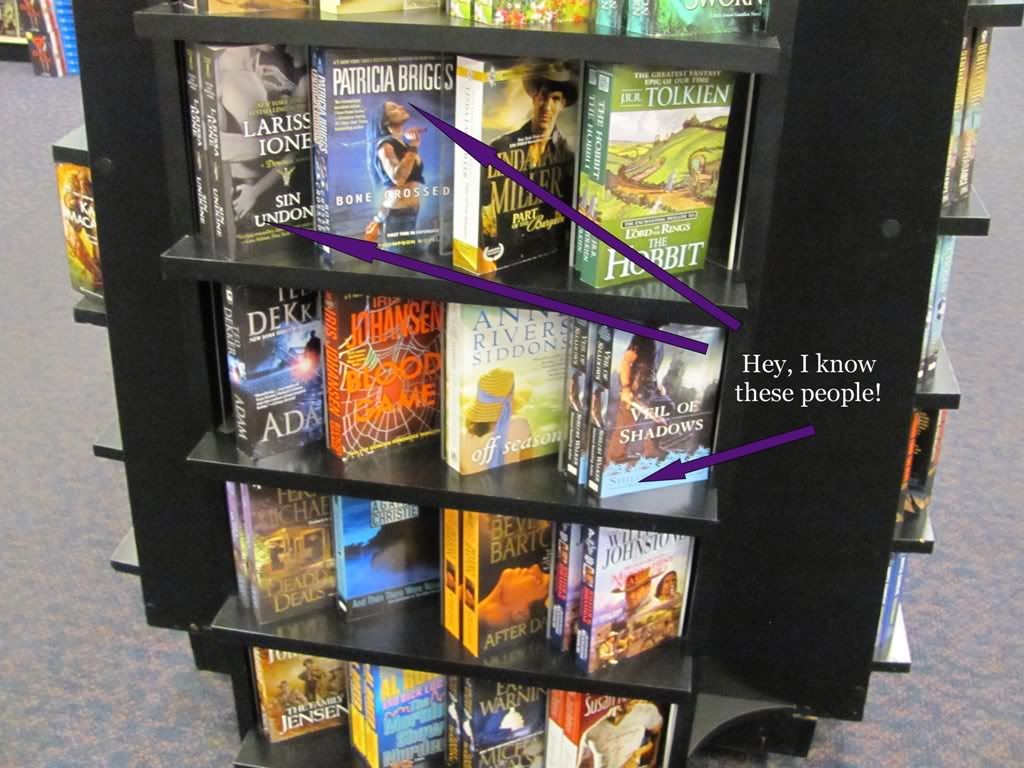 I've had some cool experiences at this BAM, too. During one visit I got into a discussion on Harlequin novels with a lifelong reader who knew who Margaret Rome was and had the same set of handblown lavender subscription bonus wineglasses I'd collected back in the eighties. Blew my mind. My favorite thing to do still is hand-sell to a talkative browser, or walk up to a confused-looking shopper and ask them what they're looking for, and then find that book. Sometimes all I have to go on is what they think the title was (inevitably wrong) and they're always a little stunned when I find it for them.
I've had some cool experiences at this BAM, too. During one visit I got into a discussion on Harlequin novels with a lifelong reader who knew who Margaret Rome was and had the same set of handblown lavender subscription bonus wineglasses I'd collected back in the eighties. Blew my mind. My favorite thing to do still is hand-sell to a talkative browser, or walk up to a confused-looking shopper and ask them what they're looking for, and then find that book. Sometimes all I have to go on is what they think the title was (inevitably wrong) and they're always a little stunned when I find it for them.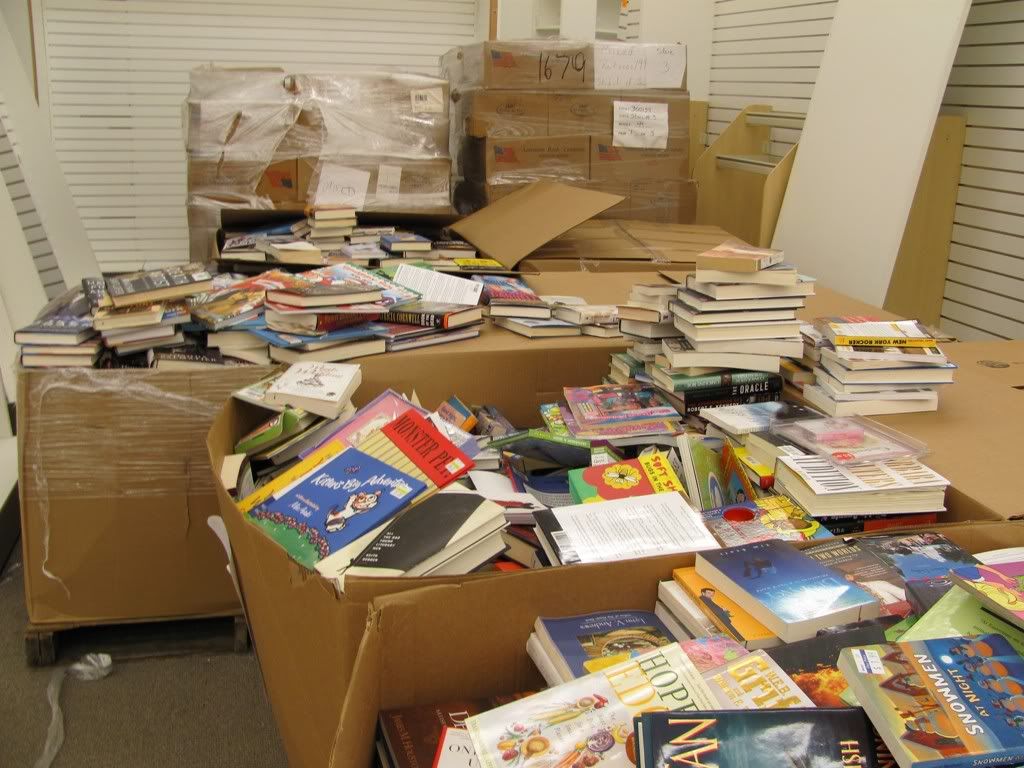 There's only one bookstore in my area that I've been steering clear of, and it's one of these giant warehouse clearance monstrosity that sets up temporary shop to get rid of overstock remainders. The first and only time I went to the one near me I saw this mess. The weekend sale they had going let you buy any book under the roof for two bucks, and there were big art books and scholarly tomes that retailed for $50.00 + or more new. They had empty shelves all around the store, but instead of shelving the books the help left them piled in the shipping boxes. Any that had fallen on the floor were just left there to get stepped on and soiled by indifferent feet. It killed me to see books being treated this way.
There's only one bookstore in my area that I've been steering clear of, and it's one of these giant warehouse clearance monstrosity that sets up temporary shop to get rid of overstock remainders. The first and only time I went to the one near me I saw this mess. The weekend sale they had going let you buy any book under the roof for two bucks, and there were big art books and scholarly tomes that retailed for $50.00 + or more new. They had empty shelves all around the store, but instead of shelving the books the help left them piled in the shipping boxes. Any that had fallen on the floor were just left there to get stepped on and soiled by indifferent feet. It killed me to see books being treated this way.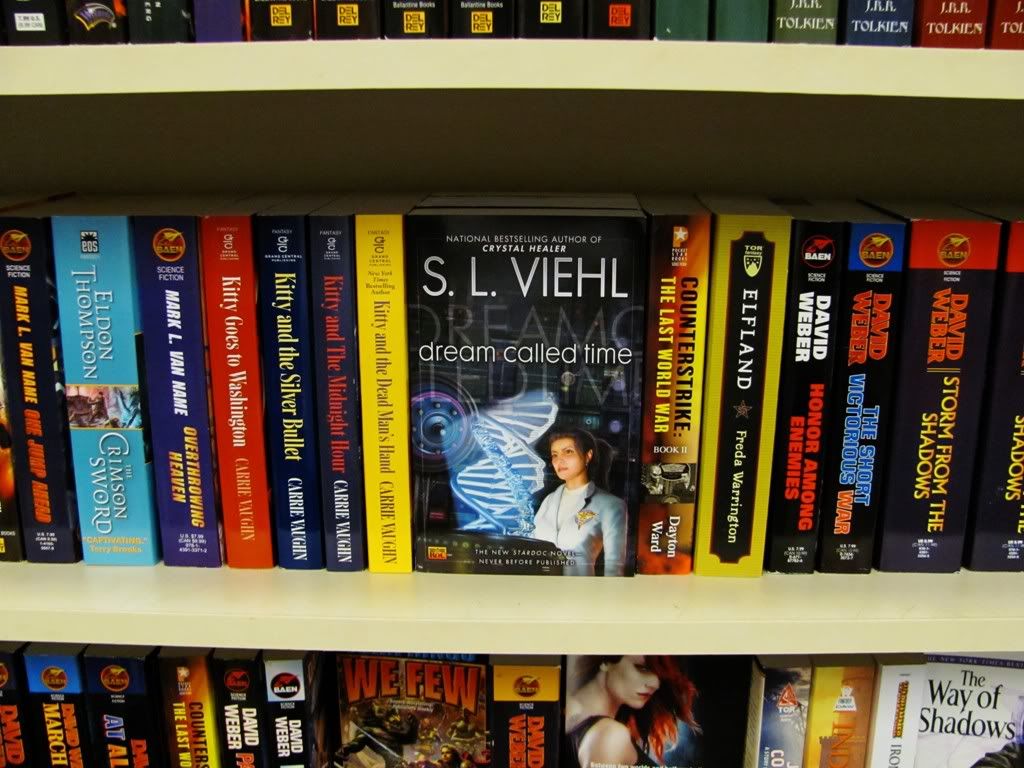 One bookstore memory that has stayed with me for years was crossing paths with a lovely older romance author in a Chicago Borders. She was wearing a gorgeous suit, but I recognized her at once because she's one of those rare authors who actually looks exactly like her bio pic. I thought she might be there for a signing or an event, but while I watched from a safe distance she picked up a couple of books to buy and then faced out her novels. Some of her books were on one of the lowest shelves, and she was wearing a skirt so it should have been awkward, but no, she did this graceful genuflection that spoke of years of practice. I didn't bother her, but seeing her there by herself, just quietly performing one of the more mundane of authorial tasks, made my heart melt (perhaps because I was there for the same reason.)
One bookstore memory that has stayed with me for years was crossing paths with a lovely older romance author in a Chicago Borders. She was wearing a gorgeous suit, but I recognized her at once because she's one of those rare authors who actually looks exactly like her bio pic. I thought she might be there for a signing or an event, but while I watched from a safe distance she picked up a couple of books to buy and then faced out her novels. Some of her books were on one of the lowest shelves, and she was wearing a skirt so it should have been awkward, but no, she did this graceful genuflection that spoke of years of practice. I didn't bother her, but seeing her there by herself, just quietly performing one of the more mundane of authorial tasks, made my heart melt (perhaps because I was there for the same reason.) I keep hearing people say book stores are an endangered species, and it worries me. I realized how much it hurts to lose a readerhood; last year one of my favorite mall haunts closed and became a home decor shop. We don't have all that many book stores in my area to begin with, and to see them close one that I'd shopped at so often, where I'd made friends with the staff and talked books with so many other readers, made me feel a little betrayed and lost. And I still can't walk past the idiot shop that replaced it without feeling a pang of grief and an intense desire to go in there and kick over some overpriced lamps.
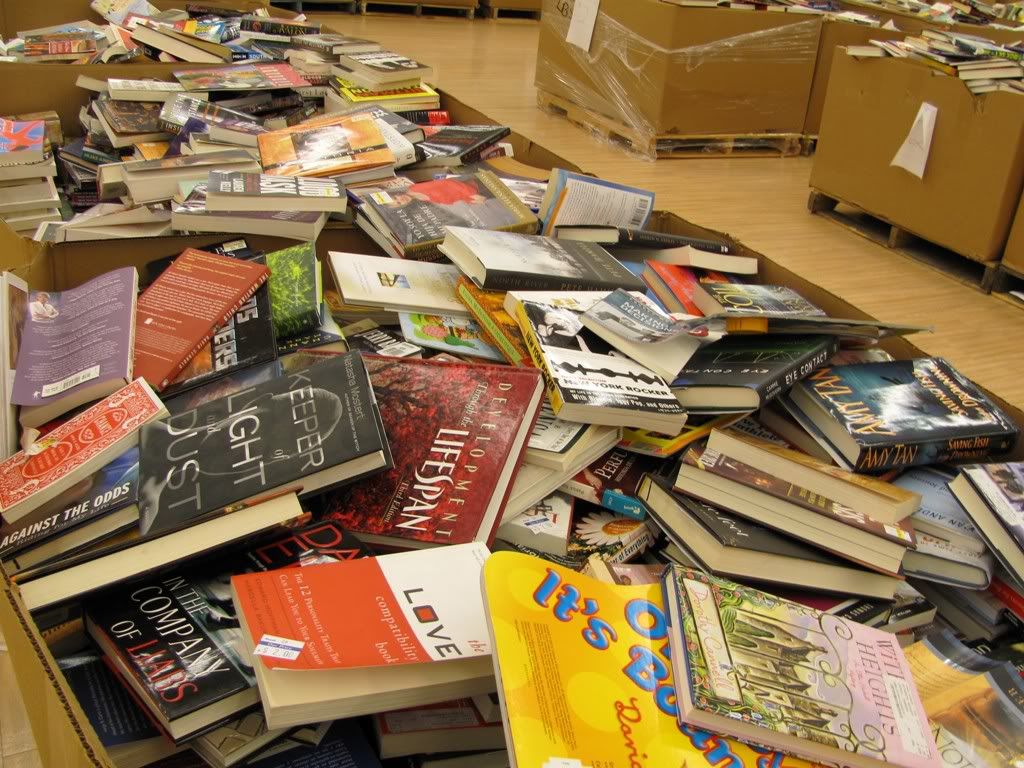 Online shopping is convenient, and will probably shut down a lot more of the brick-and-mortar stores, but it's largely sterile and disconnected. E-readers, while even more convenient, also eliminate the fun of those bargain book hunts and hidden treasure novels quests. Getting out there and visiting your favorite readerhood takes time, but there is nothing to equal the experience. I love my BAM, and shop mostly there, but this fall I'm going to make a point to visit all of the other bookstores in my area to spread the love around. I really don't want to see stores end up becoming remainder maulers who just toss books into huge cardboard bins and leave them to be picked over by the price vultures. Books merit better treatment than dollar store items.
Online shopping is convenient, and will probably shut down a lot more of the brick-and-mortar stores, but it's largely sterile and disconnected. E-readers, while even more convenient, also eliminate the fun of those bargain book hunts and hidden treasure novels quests. Getting out there and visiting your favorite readerhood takes time, but there is nothing to equal the experience. I love my BAM, and shop mostly there, but this fall I'm going to make a point to visit all of the other bookstores in my area to spread the love around. I really don't want to see stores end up becoming remainder maulers who just toss books into huge cardboard bins and leave them to be picked over by the price vultures. Books merit better treatment than dollar store items.Now it's your turn: what's your favorite readerhood like? How often are you getting out to shop for books versus ordering online? Which do you enjoy more? Let us know in comments.

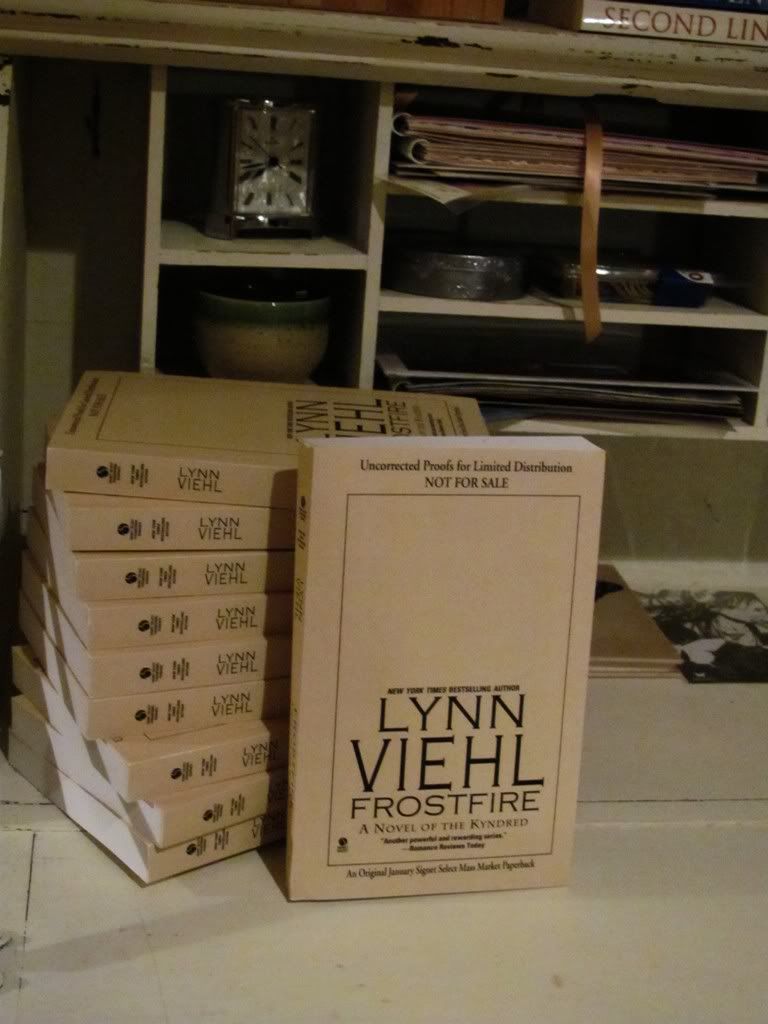 My publisher kindly sent me some ARCs for my next book, and I think a great way to kick off my online fall festivities is to give some away here. So what are you guys planning to do this fall that is something fun or just for you? Let us know in comments (or if you're still looking for your oasis, just toss your name in the hat) by midnight EST on Friday, September 24, 2010. I'll draw ten names at random from everyone who participates, and send the winners a signed ARC of
My publisher kindly sent me some ARCs for my next book, and I think a great way to kick off my online fall festivities is to give some away here. So what are you guys planning to do this fall that is something fun or just for you? Let us know in comments (or if you're still looking for your oasis, just toss your name in the hat) by midnight EST on Friday, September 24, 2010. I'll draw ten names at random from everyone who participates, and send the winners a signed ARC of 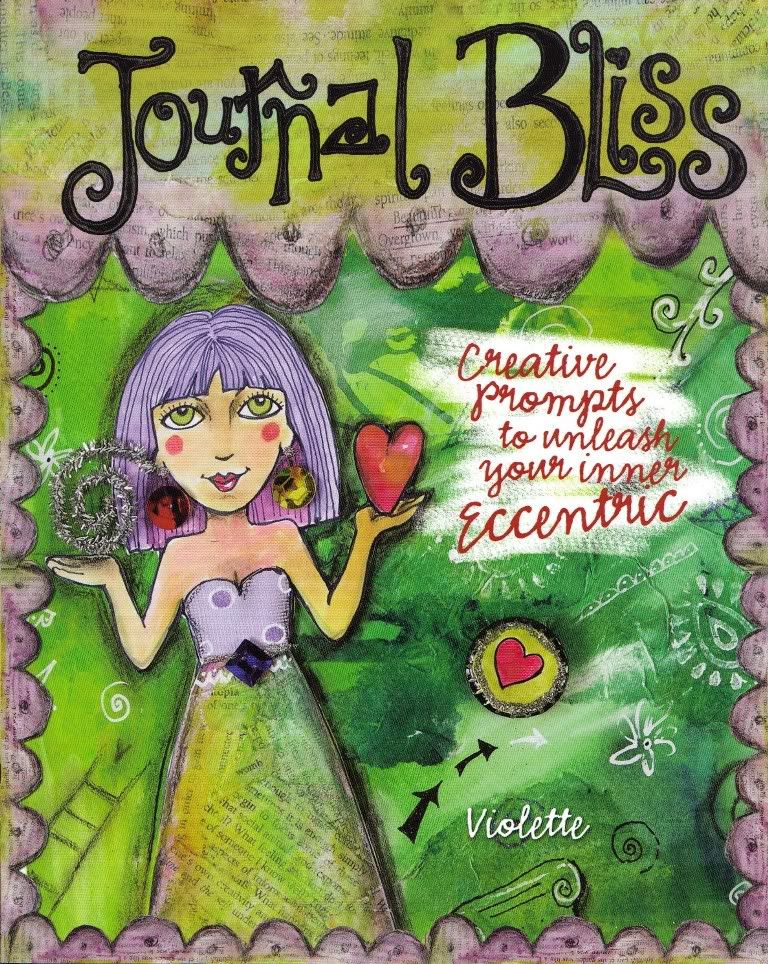
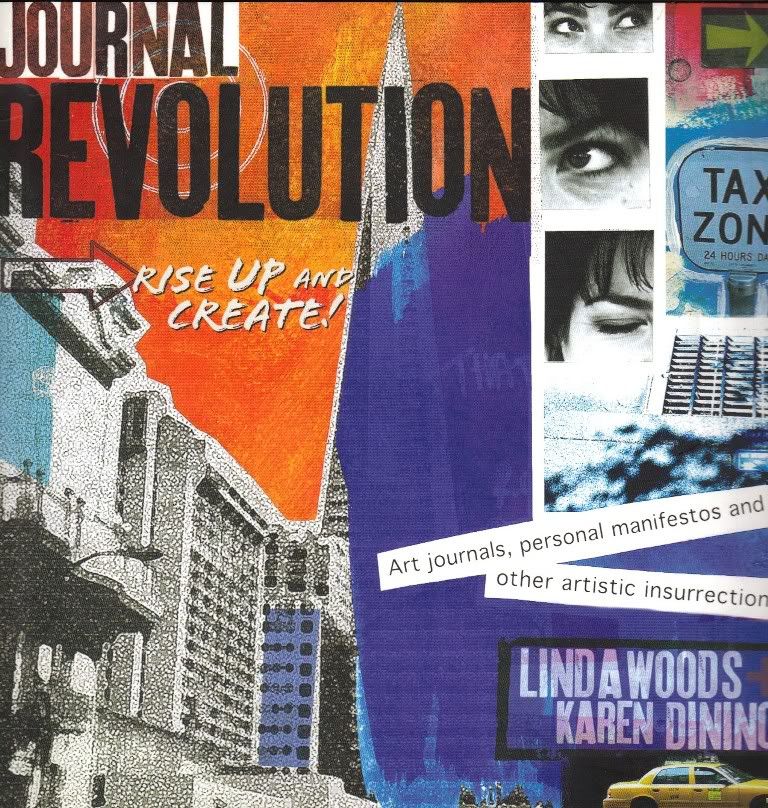


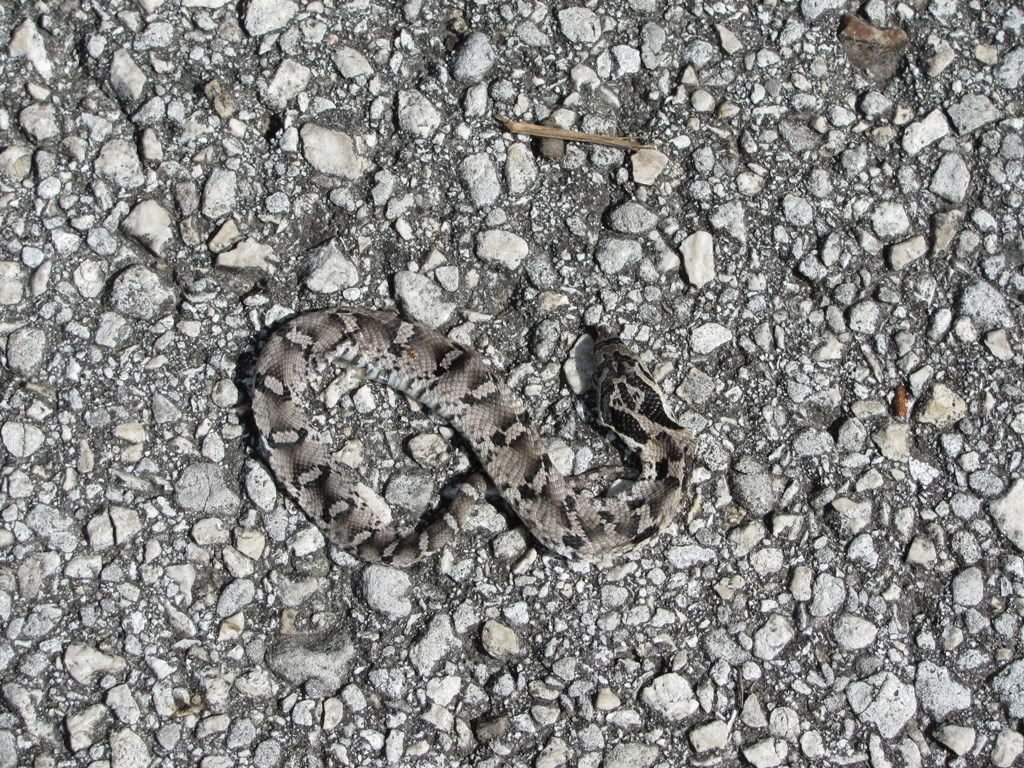
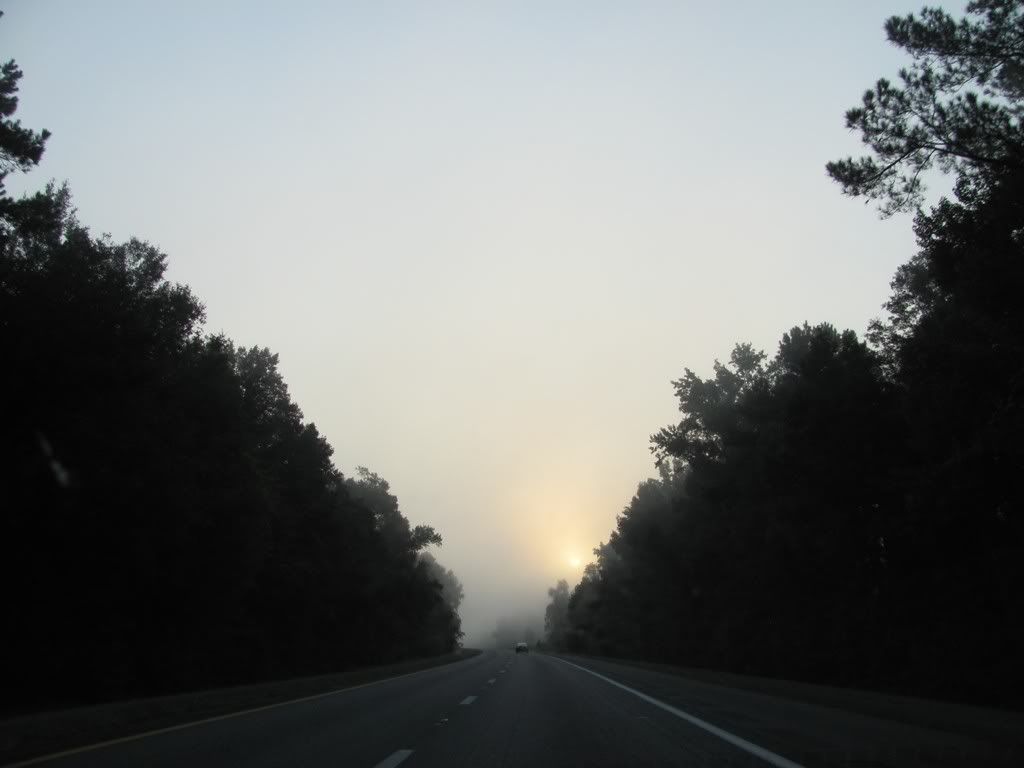

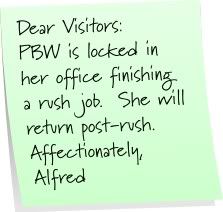
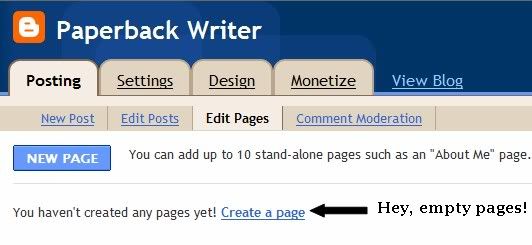




 Just Read: The City & The City by China Miéville, trade paperback
Just Read: The City & The City by China Miéville, trade paperback Reading: A Wild Light by Marjorie M. Liu
Reading: A Wild Light by Marjorie M. Liu Will Read: 1491 ~ New Revelations of the Americas before Columbus by Charles C. Mann, trade paperback
Will Read: 1491 ~ New Revelations of the Americas before Columbus by Charles C. Mann, trade paperback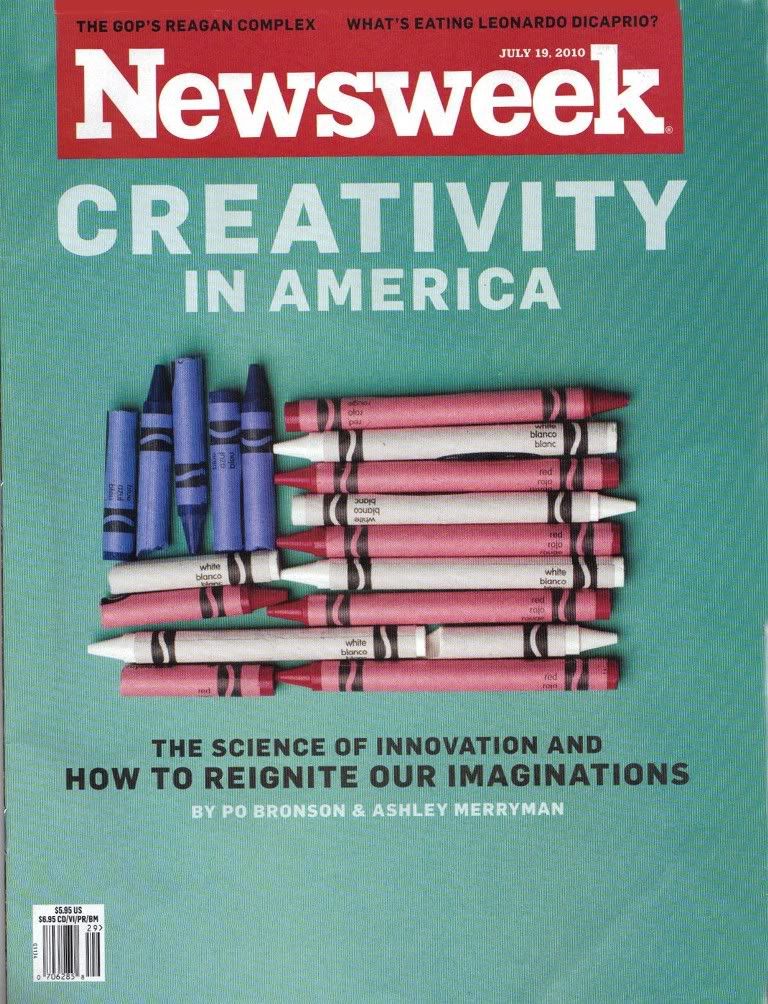 There's an interesting article about creativity in America in the July 19th issue of
There's an interesting article about creativity in America in the July 19th issue of 













 I've considered self-publishing more StarDoc novels. There were five I didn't have the opportunity to write or publish, and while I do consider the series finished with Dream Called Time, those lost books are still waiting to be realized. I also doubt I'll be able to turn my back on the StarDoc crew; they've been a daily part of my life for going on fifteen years. It's a big, wonderful universe, and I've never gotten tired of writing about it.
I've considered self-publishing more StarDoc novels. There were five I didn't have the opportunity to write or publish, and while I do consider the series finished with Dream Called Time, those lost books are still waiting to be realized. I also doubt I'll be able to turn my back on the StarDoc crew; they've been a daily part of my life for going on fifteen years. It's a big, wonderful universe, and I've never gotten tired of writing about it.





 I'm still off somewhere writing and editing, but I thought I'd post a heads-up for The Wicked House of Rohan by Anne Stuart*, a short story prequel to her upcoming historical trilogy that her publisher is offering for free in various formats for a limited time
I'm still off somewhere writing and editing, but I thought I'd post a heads-up for The Wicked House of Rohan by Anne Stuart*, a short story prequel to her upcoming historical trilogy that her publisher is offering for free in various formats for a limited time 